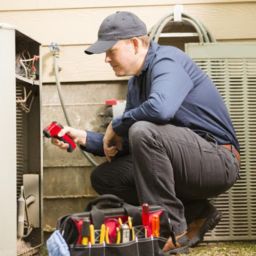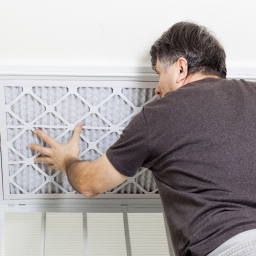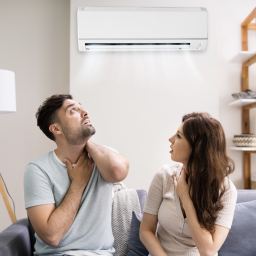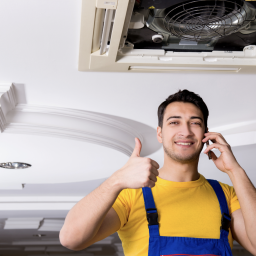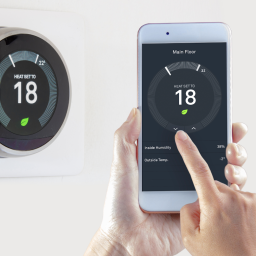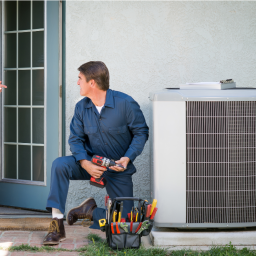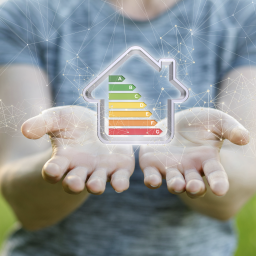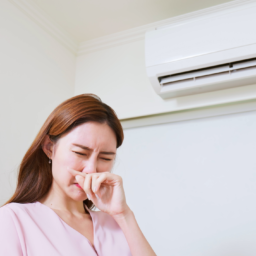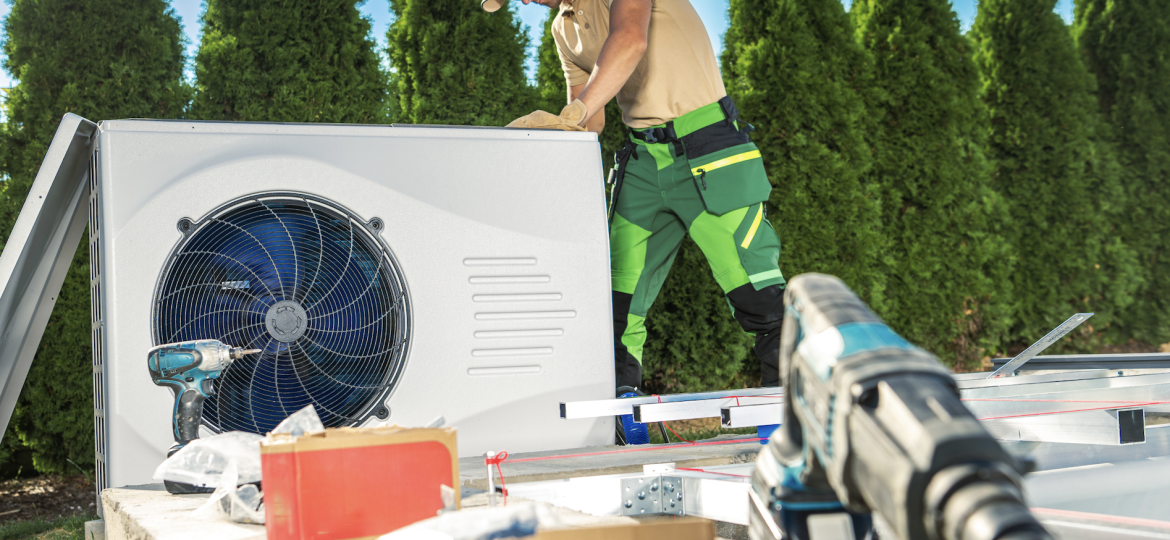
Mastering Heating and Air: Your Ultimate HVAC Guide
Heating and air conditioning systems keep us comfortable year-round. HVAC systems (Heating, Ventilation, and Air Conditioning) are essential for our homes. Understanding how an HVAC systems guide can help you make your home more comfortable, save energy, and reduce costs.
Key HVAC System Facts
- Average SEER rating for new AC systems: 16
- High-efficiency SEER rating: 20+
- Typical cooling capacity: 20-60 BTU per sq ft
- Quiet AC units operate at 60 dB or less
- Common AC types: Central, Ductless Mini-Split, Window, Portable
- Key components: Compressor, Condenser, Evaporator, Expansion Valve
- Most common refrigerant: R-410A
- Variable-speed compressors improve efficiency by 10-20%
- Smart AC features: WiFi connectivity, Smartphone apps, Voice control, Learning algorithms
- Regular maintenance can extend HVAC system lifespan by 5-10 years
- Proper insulation can reduce heating and cooling costs by up to 20%
- Indoor air quality can be significantly improved with HVAC add-ons
Understanding Air Conditioning Types and Components
There are different types of air conditioning systems. Central AC systems cool your whole house. Ductless mini-splits let you control the temperature in each room. Window units and portable air conditioners are good for small spaces. Each type has good and bad points, so think about what you need.
Every AC system has four main parts: the compressor, condenser, evaporator, and expansion valve. They work together to make your home cool. The compressor squeezes the refrigerant, the condenser lets out heat outside, the evaporator takes heat from inside air, and the expansion valve controls the refrigerant flow. Taking care of these parts helps your AC work better and last longer.
Energy Efficiency Ratings Explained
When you’re looking at ACs, you’ll see SEER ratings. SEER means Seasonal Energy Efficiency Ratio. It shows how well an AC uses electricity. A higher SEER rating means the AC saves more energy. Most new ACs have SEER ratings between 13 and 21+. The average is 16, and 20+ is really good. Remember, ACs with higher SEER ratings usually cost more to buy but save money on electricity bills.
BTU (British Thermal Unit) is another important thing to know. It tells you how much an AC can cool. You usually need about 20-60 BTU for each square foot of your home. This changes based on things like how tall your ceilings are, how much sun your home gets, and where you live. It’s important to get the right size AC for your home. If it’s too small, it won’t cool well. If it’s too big, it might turn on and off too much, which isn’t good.
Choosing the Right AC System
Picking the best AC isn’t just about getting the strongest one. You need to think about your home’s size and layout, the weather where you live, how much energy you want to save, and how much money you can spend. Also, think about how loud the AC is – a quiet AC (60 dB or less) can make your home more comfortable. Look at things like how well your home is insulated, how many windows you have, and how many people usually live there.
For example, if you live in a small apartment, a window unit or portable AC might be enough. But for a bigger house, you might want a central AC system or several ductless mini-splits to cool different areas. Systems that cool different areas can be really good because you can cool only the rooms you’re using and change the temperature in different parts of your house.
Smart Features in Modern AC Systems
New AC units are getting smarter. Many can connect to WiFi, so you can control your home’s temperature with your phone. Some even work with voice assistants like Alexa or Google Home. These smart features make things easier and can help save energy by learning when you’re home and adjusting the cooling. For example, some systems can tell when you’re away and save energy, then cool your house before you come back.
Maintaining Your HVAC System
Taking care of your HVAC system is important to keep it working well. This means changing filters every 1-3 months, cleaning the condenser coils, and checking the refrigerant. It’s also good to have a professional check it once a year to catch any problems early. Good maintenance can make your system last longer and stop big problems from happening.
By taking care of your HVAC system, you can make it last longer, work better, and avoid expensive repairs. A well-maintained system also gives you better air quality in your home. Try to make a schedule for maintenance so you don’t forget important things like changing filters and getting professional check-ups.
Troubleshooting Common AC Problems
Even if you take good care of your AC, problems can still happen. Some common issues are not cooling enough, strange noises or smells, turning on and off too much, and ice forming on coils. If you notice these problems, you might need to call for professional AC repair. But there are some things you can check yourself, like making sure all vents are open and not blocked, checking thermostat settings, and looking for any visible damage or leaks.
Remember, while you can fix some small things (like changing a filter), most AC repairs should be done by professionals to be safe and keep your warranty. Trying to fix complicated problems without knowing how can cause more damage and might cancel your warranty.
The Importance of Professional HVAC Installation
When you need a new HVAC system, it’s important to have professionals install it. They can make sure it’s the right size for your home, put in the right amount of refrigerant, and install the ducts correctly. This helps your system work its best, keeps your warranty good, and makes sure everything is safe. Professional installers can also help you choose the best system for your needs and make sure everything follows local building rules.
Heating Systems: An Overview
Heating systems are the other part of HVAC. Common types include furnaces (gas and electric), heat pumps, boilers, and radiant heating systems. Each has good and bad points, and the best choice depends on your weather, home layout, and energy preferences. Understanding the differences can help you choose the right one for your home.
For example, heat pumps can heat and cool your home, which is great for places with mild weather. Furnaces are good for heating in colder places. Boilers and radiant systems can give even, comfortable heat but might be harder to install.
Energy-Saving Tips for HVAC Systems
Want to save on energy bills? Try these tips:
– Use a programmable thermostat to change temperatures automatically
– Make sure your home is well-insulated
– Think about systems that heat or cool different areas separately
– Keep up with regular maintenance to keep your system working well
– Use ceiling fans to move air around and help your AC
– Get energy-efficient windows and doors to keep heat in or out
– Plant trees or put up awnings to block direct sunlight on your home
Indoor Air Quality and HVAC Systems
Your HVAC system affects your indoor air quality. You can add air filtration systems, humidity control, or UV light purification to your HVAC setup. These can help remove allergens, control moisture, and kill harmful bacteria, making your home healthier. Good ventilation is also important for good air quality, so make sure your system is bringing in enough fresh air.
Conclusion: Choosing Your Perfect HVAC Solution
Choosing the right HVAC system means balancing efficiency, cost, and your specific needs. Think about your home’s size, local weather, and energy-saving goals. It might seem like a lot to think about, but a well-chosen, properly installed HVAC system can give you lower energy bills, more comfort, and better air quality.
Don’t be afraid to ask HVAC professionals for advice. They can help you understand your options and find the best heating and cooling solution for your home. With the right HVAC system, you’ll be comfortable all year and keep your energy costs down. Regular maintenance, smart usage, and updating your system when needed can help your HVAC system work well for many years.


